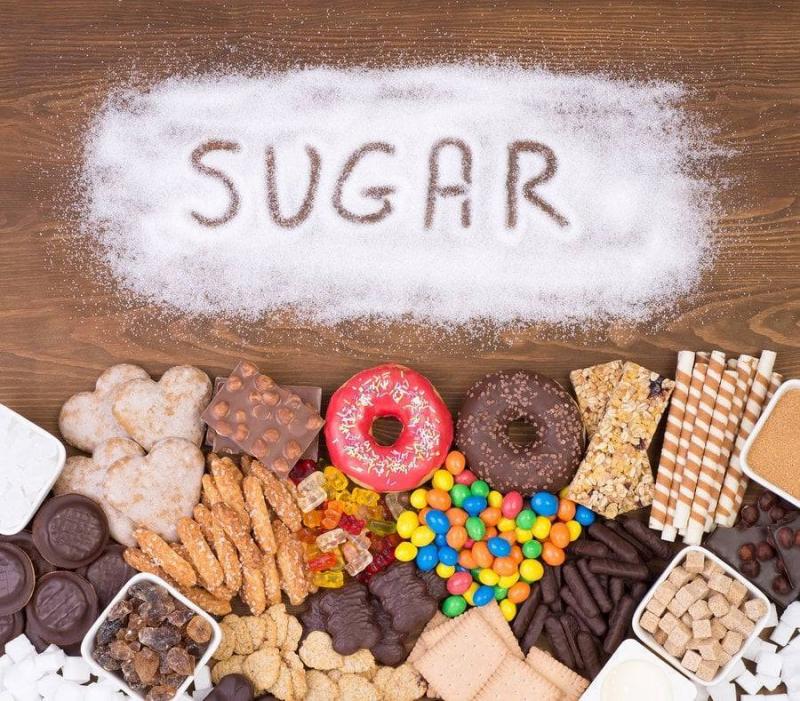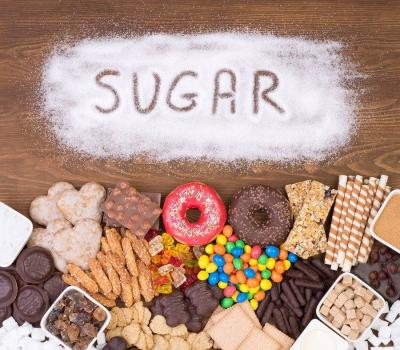Glucose, a form of sugar, is the primary energy source for every cell in the body. Because the brain is very rich in neurons, it is the organ that demands the most energy, using half of the sugar energy in the body; the brain consumes more energy than any other organ, with glucose being its main fuel source. But what happens when the brain is exposed to excessive amounts of sugar in the typical American diet? In this case, more is certainly not better.
Although the brain needs glucose, excessive amounts of this energy source can be detrimental. A study conducted in 2012 by researchers at the University of California indicated a positive relationship between fructose consumption, another form of sugar, and cellular aging. Meanwhile, a 2009 study using an animal model conducted by a team from the University of Montreal and Boston College linked excess glucose consumption to memory and cognitive deficits, according to Harvard.edu.
Another serious effect of sugar on the brain is its impact on mood, including impaired emotional processing. In healthy young individuals, the ability to process emotions is compromised with elevated blood glucose levels, according to brain imaging studies. Furthermore, inflammation in the brain may contribute to increased memory difficulties. A study published in 2016 in the journal "Behavioral Brain Research" found inflammatory markers in the hippocampus of mice fed a high-sugar diet, but not in those fed a regular diet. The good news is that this inflammatory damage caused by sugar may not always be permanent.
Another study published in "Diabetes Care" reported that individuals with type 2 diabetes experienced increased sadness and anxiety during acute blood sugar spikes. Furthermore, another study linked sugar to depression—a dietary consumption and mood analysis of 23,245 individuals registered in the Whitehall II study found that higher sugar consumption rates were associated with increased incidence of depression.
Elevated blood glucose levels also damage blood vessels, as damage to these vessels is the primary cause of vascular complications from diabetes, leading to further issues, such as damage to blood vessels in the brain and eyes, causing retinopathy.
Sugar addiction is real. There are four main components of addiction: overconsumption, withdrawal, cravings, and cross-sensitization (the idea that one addictive substance predisposes a person to become addicted to another). All these components have been observed in animal models of addiction, for both sugar and drugs alike.
A report published on CNN highlights that in neuroscience, food is something we refer to as a "natural reward." To survive, activities such as eating, having sex, and caring for others should be enjoyable for the brain, so that these behaviors are reinforced and repeated. The relationship between the nucleus accumbens and the prefrontal cortex determines our motor functions, such as deciding whether to take another bite of delicious chocolate cake. The prefrontal cortex also activates hormones that tell our bodies, "Hey, this cake is really delicious. I'll remember that in the future."
Just like drugs, sugar leads to increased dopamine release in the nucleus accumbens. Over the long term, regular sugar consumption alters gene expression and dopamine receptor availability in both the midbrain and the frontal cortex. It also inhibits the action of the dopamine transporter, which is a protein that pumps dopamine from the synapse back into the neuron after it is released.
In short, this means that repeated access to sugar over time leads to prolonged dopamine signaling, heightened reward pathway activation in the brain, and a greater need for more sugar to activate all dopamine receptors in the midbrain as it did before. The brain becomes tolerant to sugar and requires more to achieve the same "sugar high."
Estimates suggest that the average American consumes 22 teaspoons of added sugar daily, equivalent to an additional 350 calories, and this number may have risen since then. A few months ago, one expert suggested that the average British citizen consumes 238 teaspoons of sugar weekly.
Today, with the growing importance of convenience in our food choices more than ever, it is nearly impossible to find processed and packaged foods without added sugars for flavor, preservation, or both. These added sugars are deceptive, and unbeknownst to many of us, we have become addicts. Just as substances of abuse, such as nicotine, cocaine, and heroin, hijack the brain's reward pathways and create addiction, increasing neurochemical and behavioral evidence suggests that sugar also causes addiction in the same way.




